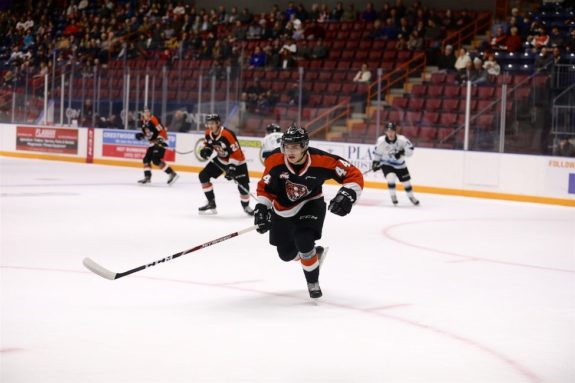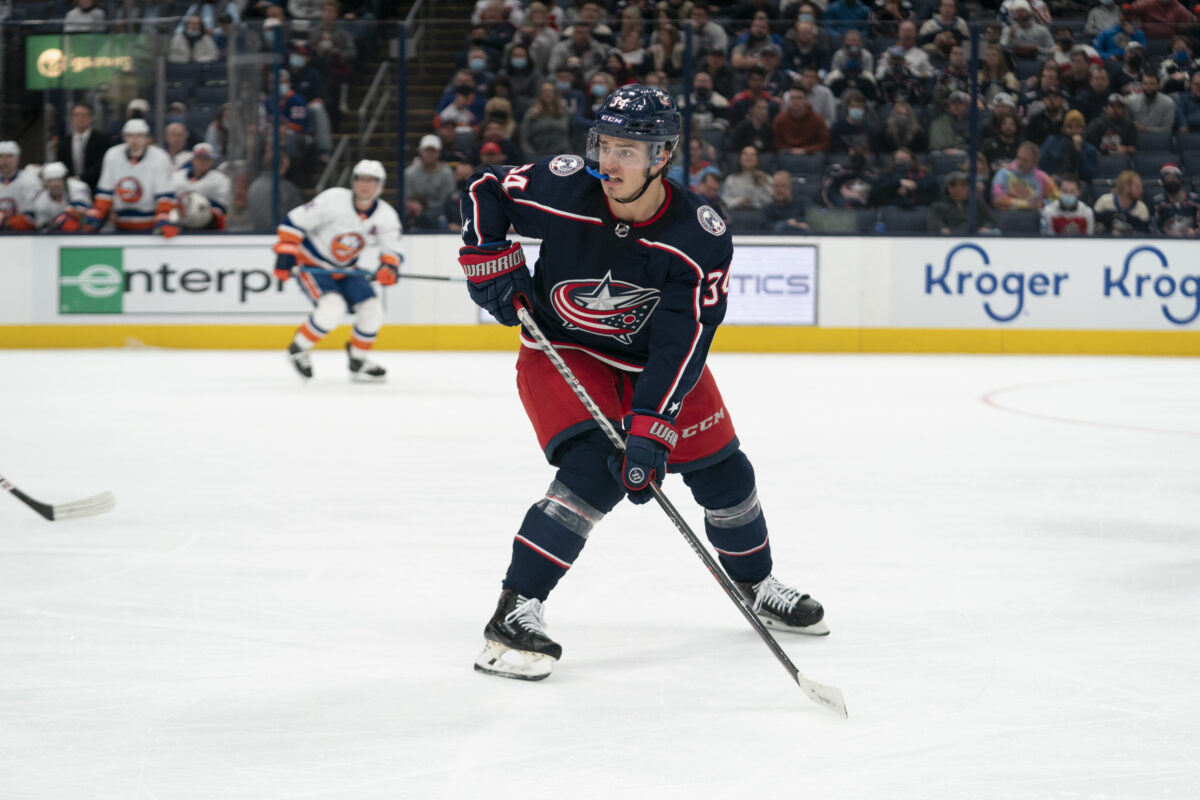The Columbus Blue Jackets were certainly excited by the prospect of a Columbus native defying the odds and playing in the NHL at 18 years old. While it was certainly a fun turn of events at the time to have Cole Sillinger play for the team during the 2021-22 season, in the long run, it may have been a terrible mistake.
Sillinger’s Career so Far
Sillinger was the Blue Jackets’ 12th overall selection in the 2021 NHL Draft and was among the first from his class to make it to the league after he made the opening night roster for the 2021-22 season following a strong training camp. General manager (GM) Jarmo Kekalainen faced a difficult decision though once the season began. Sillinger had a solid start, and even though he struggled later in the season, it was already lost and the American Hockey League’s Cleveland Monsters weren’t in much better shape. Despite the fact that he had played in the Western Hockey League, he was drafted out of the United States Hockey League and therefore is eligible for the AHL. (from “With contract signed, Cole Sillinger can get to work with Blue Jackets … maybe sooner than most expect” The Athletic, Aug. 19,2021.

Sillinger had a decent rookie season, however, he struggled with consistency and went eight or more games without a point multiple times. His 31 points through 79 games were impressive considering his age, but he hasn’t done much of anything to follow it up this season. During the early stages of the 2022-23 season, he was invisible for the most part. It also took until the eighth game for him to record his first point, which was an assist against the Arizona Coyotes, and his 14th against the New York Islanders to record his first goal.
At the holiday break, he’s currently sitting at six points through 30 games which simply put is not good enough to justify an NHL roster spot, especially in a top-six role. Sophomore slumps are a generally accepted principle in sports, however, there’s a difference between a slump and contributing essentially nothing to your organization. With the amount of talent waiting in the wings, it’s hard to justify sticking with him the entire season if his performance doesn’t improve when he gets back from his current injury.
Looking Ahead
The Blue Jackets have reached a crucial point in Sillinger’s development with no way of winning for the time being. The first option is to send a message that he’s not performing well enough and move him back to the WHL, but that’s very unlikely to happen at this stage since it’s a permanent solution to the problem this season. It would allow him to regain some confidence at a lower-level league, however, it would certainly upset the player as he has a season and a half of NHL experience at this point and is considered an NHL player rather than a prospect.
If the team would’ve sent Sillinger to the World Junior Championship, that would’ve been a more reasonable approach, but his injury made that impossible, and it’s unlikely they ever even considered it. The second option would be to send him to the AHL and let him ride out the season with the Monsters. This would be likely the most effective solution, as it gives the team flexibility moving forward and gives the player an opportunity to regain confidence and develop consistency.

Lastly, the most likely option would be that Sillinger remains in the NHL for the remainder of the season with nothing changing. If this was a mid-level prospect with minimal potential then that could be fine, however, the longer he struggles the more likely it affects his long-term development. If they’re going to go this route, they should at least have him play on the wing for a while to reduce his responsibilities and help him focus on developing offensive consistency.
It’s no secret that the Blue Jackets have had a tough time developing forwards, particularly during the Jarmo Kekalainen era. Names like Kerby Rychel and Sonny Milano come to mind with more recent examples being Liam Foudy and Emil Benstrom. Some of them like Rychel weren’t legitimate NHL-caliber players, however, Milano shined when he left the organization.
Related: Blue Jackets Who Should Be Untouchable in 2023
Sillinger can still have a great career in the NHL. It’s not a bad thing to not be ready for the biggest league in the world at the age of 19. Most players don’t get the experience he has now until their mid-20s, but it’s time to give his development a bit of a reset one way or another. Sending him to the AHL doesn’t allow him to necessarily play meaningful games, however, it does allow him to play with a level of competition that is more fitting to his current skill set. Regardless of what they do, the Blue Jackets need to change something with Sillinger in order to help him get his development back on track.
